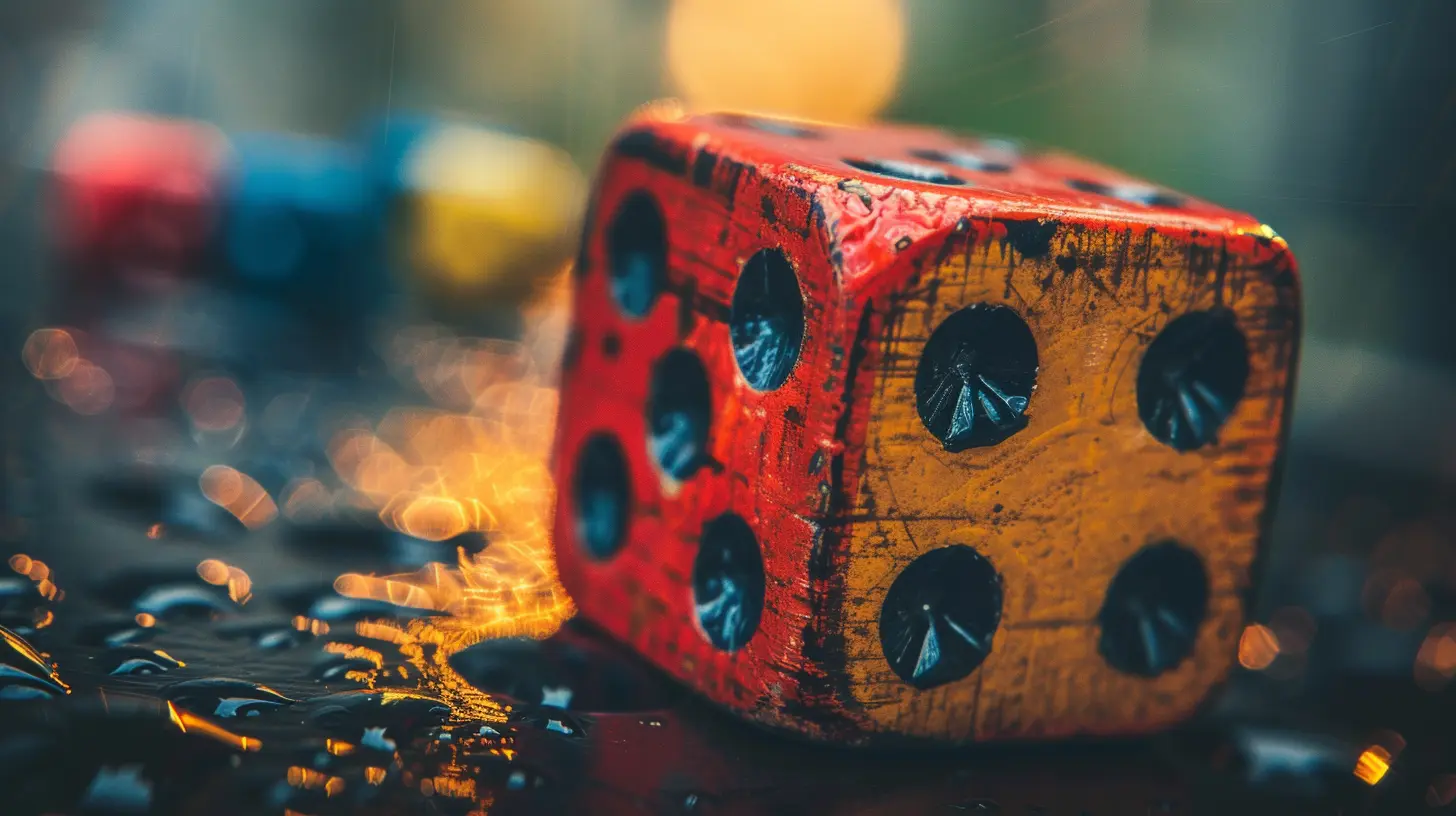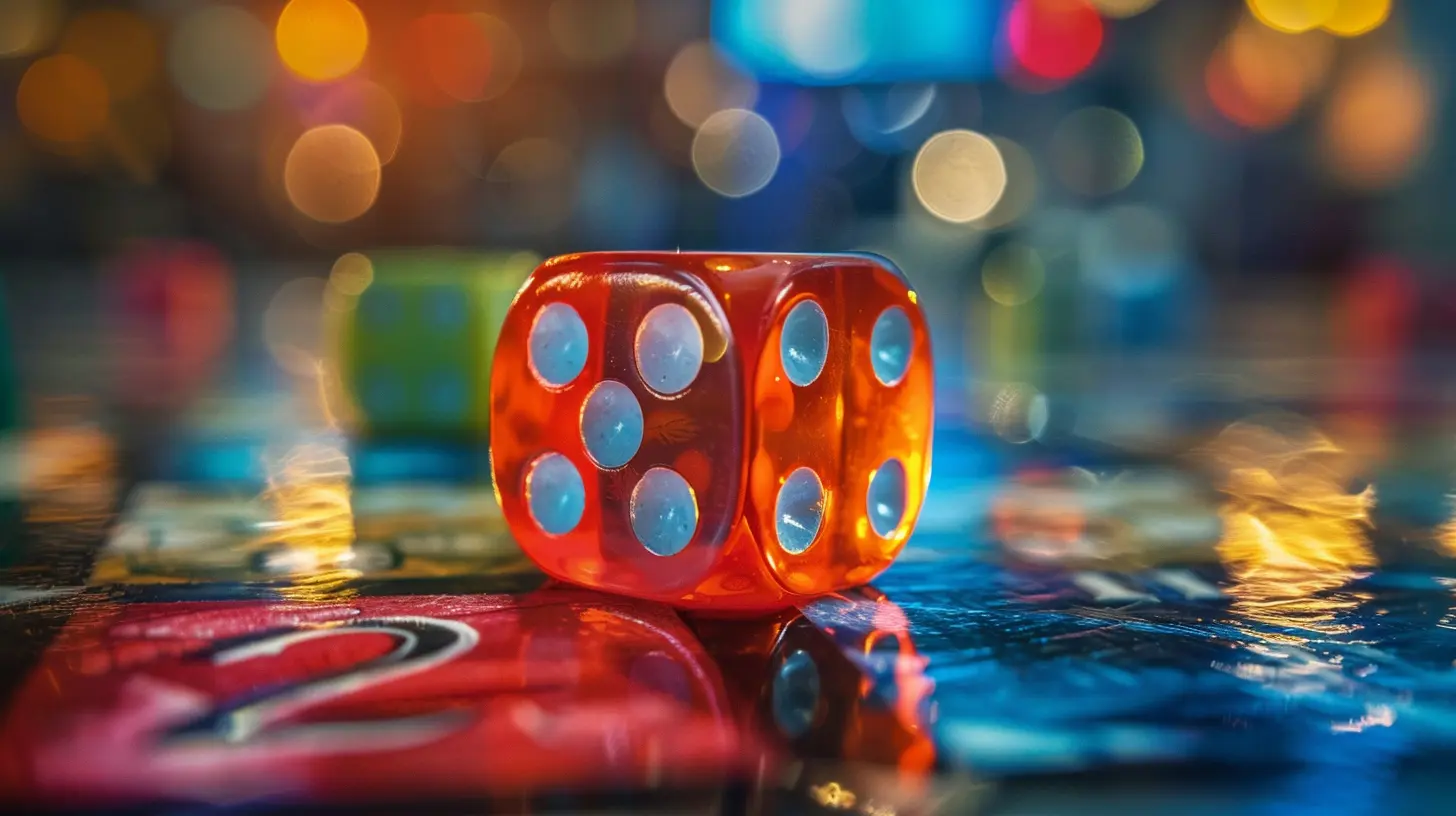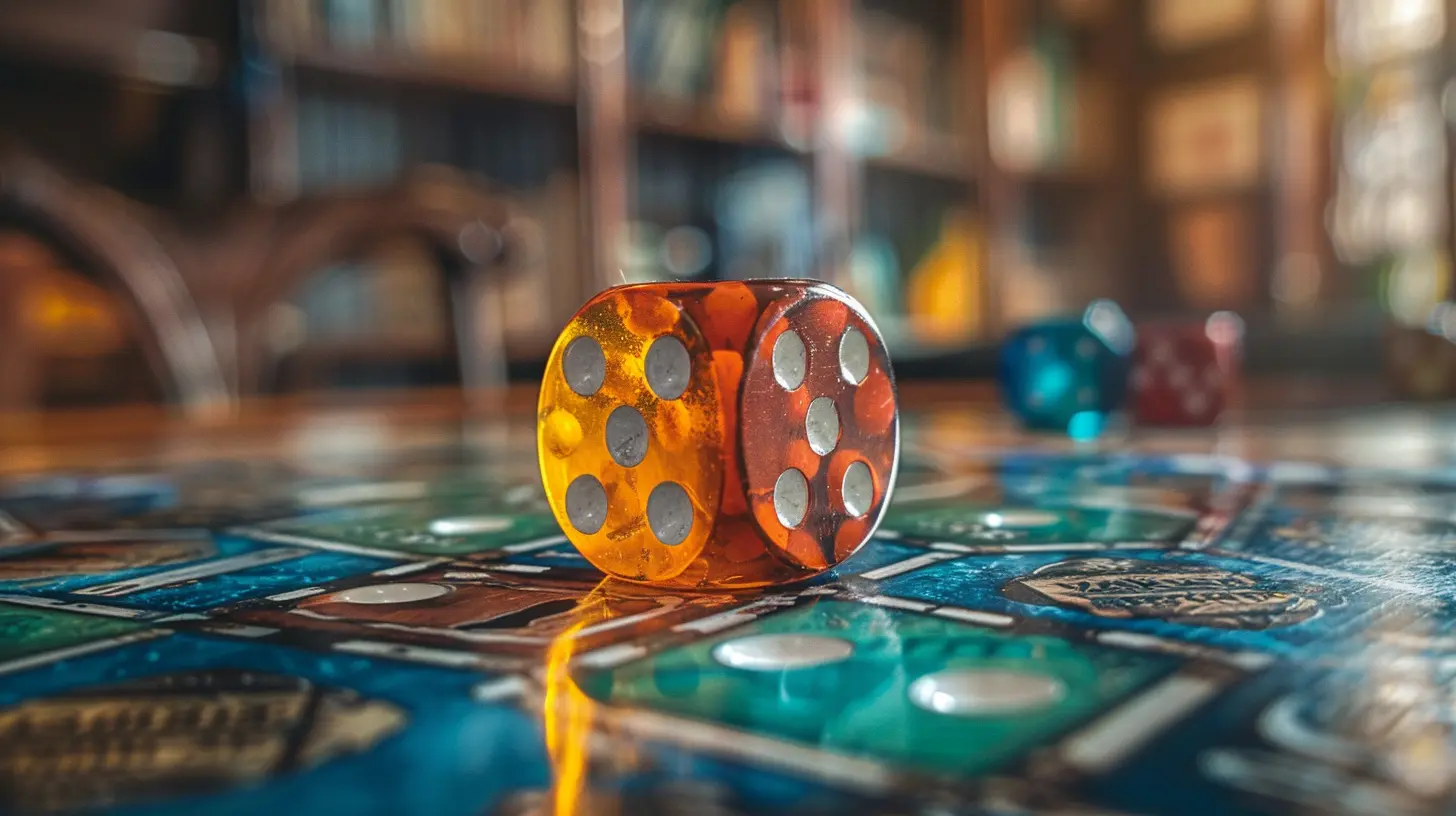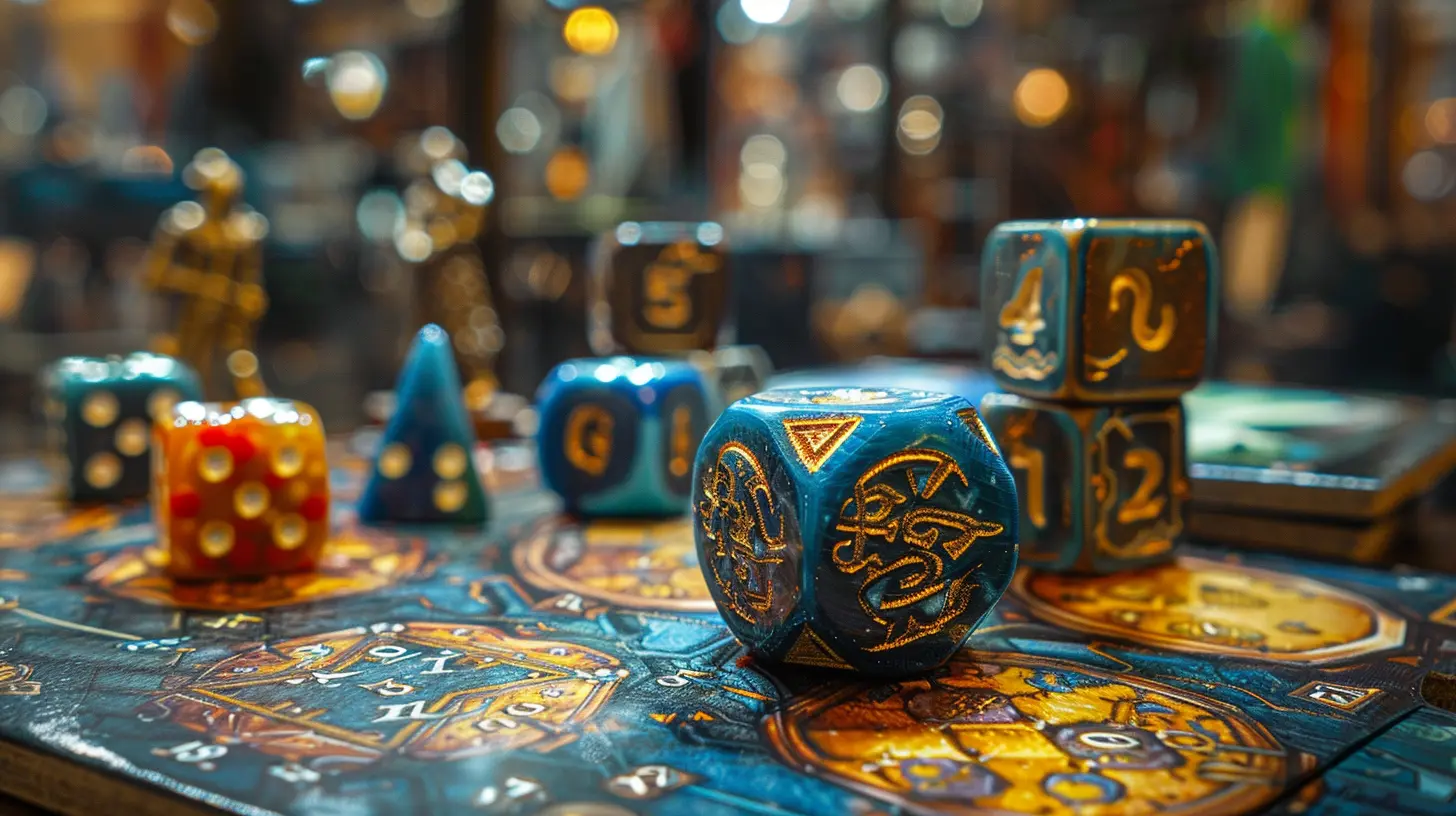The Science of Luck and Randomness in Board Games
2 October 2025
Board games are a fantastic way to bring people together, whether it’s family fun on a Sunday afternoon, a deep strategic battle with friends, or just a lighthearted party game. But have you ever stopped mid-game to think about how luck and randomness shape your experience? Some games hinge on the roll of a die or the draw of a card, while others seem to favor strategic decision-making. What’s the deal with that? Is it all about chance, or is there some sneaky science behind it all?
If you’ve ever wondered why sometimes you walk away victorious and other times you lose embarrassingly (despite your best efforts), this article is for you! Let’s dive into the fascinating world of luck and randomness in board games and what makes them so unpredictable and fun.
What Is Luck, Really?
Luck is one of those concepts that feels magical and elusive, right? Some people believe it’s a supernatural force, while others think it’s all about probability and statistics. In terms of board games, luck boils down to randomness—those unpredictable moments when the roll of a die, a shuffled deck of cards, or a spin of a wheel determines your fate.For instance, imagine you're playing Monopoly. You’re one roll away from landing on Boardwalk—with a hotel. You toss the dice, hoping to avoid disaster, but bam! You land right on it. Was it bad luck? In game terms, it was a random outcome you couldn’t control.
This randomness keeps games exciting—no one wants a completely predictable game, where outcomes are set in stone. The chaos introduced by luck ensures that even the most strategically brilliant players can find themselves sweating bullets when the dice hit the table.
Randomness or Chaos? How They Differ
Here’s a fun thought: randomness and chaos aren’t exactly the same. Randomness refers to unpredictable outcomes within a defined system. In board games, this means rolling dice, drawing cards, or spinning a wheel. Chaos, on the other hand, refers to systems so complex that they feel random—even if, technically, they’re not.Take dice rolls, for example. When you roll a die, it might feel random, but the outcome is technically determined by factors like how much force you used, the angle of your throw, and the surface it lands on. It’s close enough to true randomness that we can’t predict the result, so we'll call it random for the sake of simplicity.
Board games use randomness to level the playing field, making them accessible even for new or inexperienced players. That element of unpredictability ensures that even a beginner can win against seasoned veterans—creating that magical mix of tension and fun.
Why Luck Matters in Board Games
The role of luck in board games varies wildly depending on the type of game you’re playing. But why does luck matter so much? It all comes down to unpredictability and replayability.Imagine a game with zero randomness—like chess. Don’t get me wrong, chess is amazing, but it’s purely skill-based. If you play chess against someone significantly better than you, odds are you’ll lose. Every. Single. Time. Now think about a game like Catan or Risk, where a lucky roll can completely change the course of the game. Suddenly, all players—skilled or not—have a chance to win. That’s a huge factor in making board games enjoyable for all kinds of players.
Plus, randomness keeps people coming back. If the outcome of a game is entirely deterministic, you might lose interest after a couple of rounds. But inject a little luck and unpredictability into the mix, and you’ve got a game that feels fresh and exciting every time you play.
Designing Luck: The Science Behind It
Ever wonder how game designers decide how much luck a board game should have? There’s actually a ton of thought that goes into it! Designers typically think about the balance between luck (randomness) and skill (strategy).High-Luck Games
Games with a heavy reliance on chance—like Candy Land or Snakes and Ladders—are often aimed at younger players or those looking for casual fun. These types of games eliminate the need for strategy, focusing purely on random outcomes. The upside? They’re easy to pick up and play, and they’re fair because no one can "outplay" the dice roll.High-Skill Games
On the flip side, you’ve got games like Chess or Terraforming Mars that lean more heavily on strategy and player decisions. Randomness in these games is limited or non-existent. These games cater to players looking for a brain-burning challenge.Balanced Games
Then there’s the sweet spot—games that mix skill and luck, like Catan, Risk, or Splendor. Designers carefully tweak the mechanics to make sure luck plays a role but doesn’t overshadow skill. Take Dice Throne as an example: it’s a game where you roll dice to deal damage, but you can reroll or use abilities to mitigate bad rolls. That blend makes the game thrilling while keeping it fair.Good Luck vs. Bad Luck: Can You Influence It?
Ah, the age-old question: can you influence “luck”? In a way, yes! While you can’t control random outcomes, you can control how you prepare for them. The best board gamers know how to account for luck in their strategies.For example, in games like Ticket to Ride, experienced players might avoid strategies that rely too heavily on drawing specific cards. Instead, they’ll plan their routes in a way that gives them flexibility, so a bad draw doesn’t wreck their plans. Similarly, in Risk, players might calculate probabilities before committing to an attack, ensuring they have a backup plan if the dice betray them.
Another tip? Learn the odds. In many games, understanding probabilities can increase your chances of success. Say you’re playing a card-drawing game. If you’ve got a 1-in-5 chance of drawing the card you need, you can adjust your expectations (and decisions) accordingly. By playing the odds, you can reduce the impact of bad luck over time.
Luck vs. Skill: Finding the Balance
The debate between luck and skill is as old as board games themselves. Some players crave the calculated depth of strategy-heavy games, while others love the thrill of lucky dice rolls or unexpected twists. So, which is better?The answer is…it depends. Yep, not the most satisfying conclusion, but hear me out. It really comes down to personal preference and the kind of experience you’re after. If you’re in the mood for brainy competition, you’ll probably gravitate toward skill-based games. But if you’re looking for a light-hearted, unpredictable adventure, a luck-heavy game might be more your speed.
The best games, in my opinion, are the ones that strike a perfect balance. They reward skilled play but also give everyone a fighting chance—even if they’re new to the game. That way, everyone has fun. And isn’t that the whole point?
The Psychology of Winning and Losing
Let’s get real for a second: winning feels great, but losing? Not so much. Games with a strong element of luck can soften the blow of losing. Why? Because you can blame it on the dice instead of your decisions. (“I totally would have won if I hadn’t rolled a 1!” Sound familiar?)That’s why most family-friendly board games lean on luck—they want to avoid hard feelings and keep the atmosphere fun and relaxed. On the flip side, strategy-heavy games tend to appeal to competitive players because the results feel more “earned.”
Final Thoughts: Embrace the Chaos
At its core, luck and randomness are the spice of board games. They keep us guessing, laughing, and coming back for more. Sure, it can be frustrating when the dice hate you or the cards refuse to cooperate, but that unpredictability is part of what makes gaming so much fun.So the next time you’re dealt a bad hand or land on the dreaded “Go to Jail” space, don’t sweat it. Just remember—it’s all part of the game. And who knows? Maybe next time, the dice will roll in your favor.
all images in this post were generated using AI tools
Category:
Board GamesAuthor:

Avril McDowney
Discussion
rate this article
1 comments
Morgan McEachern
This article brilliantly explores the intricate balance of luck and randomness in board games. It highlights how these elements can enhance player engagement and create memorable experiences. Understanding the science behind these mechanics not only deepens appreciation for games but also informs better strategies for winning. Great read!
October 3, 2025 at 3:45 AM

Avril McDowney
Thank you for your thoughtful comment! I'm glad you enjoyed the article and found the exploration of luck and randomness insightful. Happy gaming!


